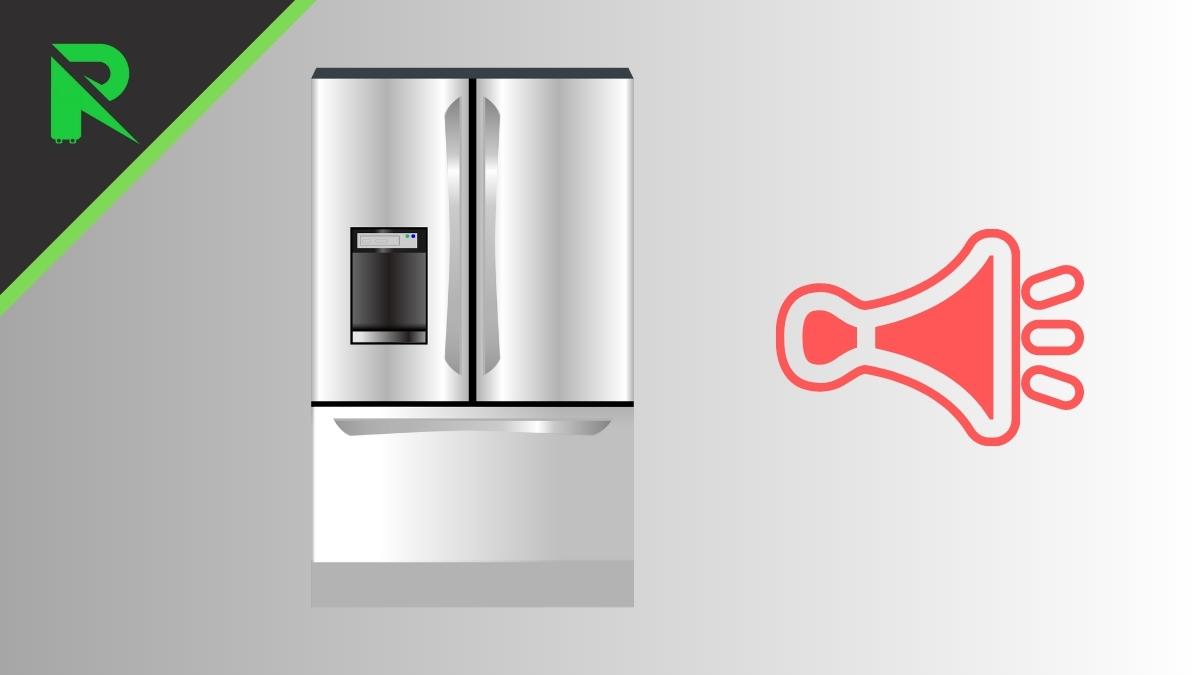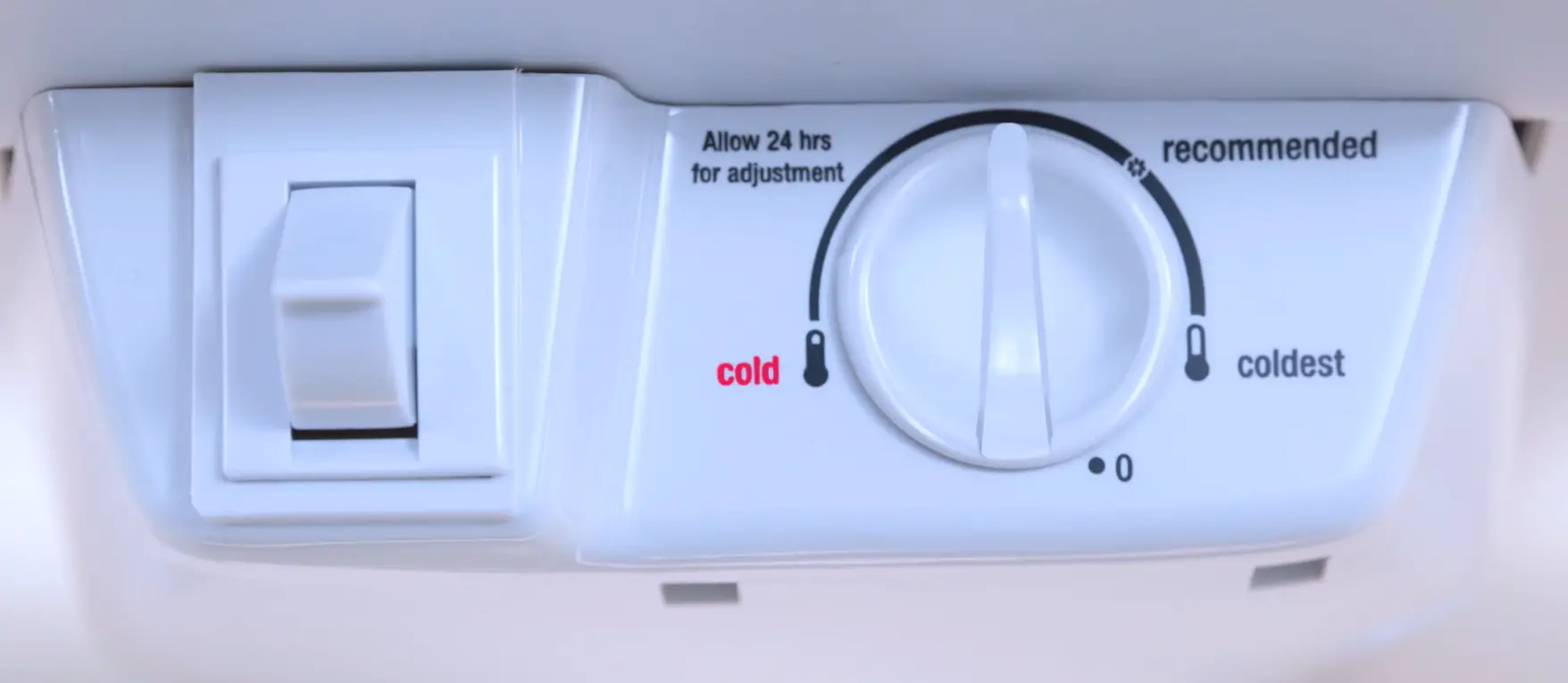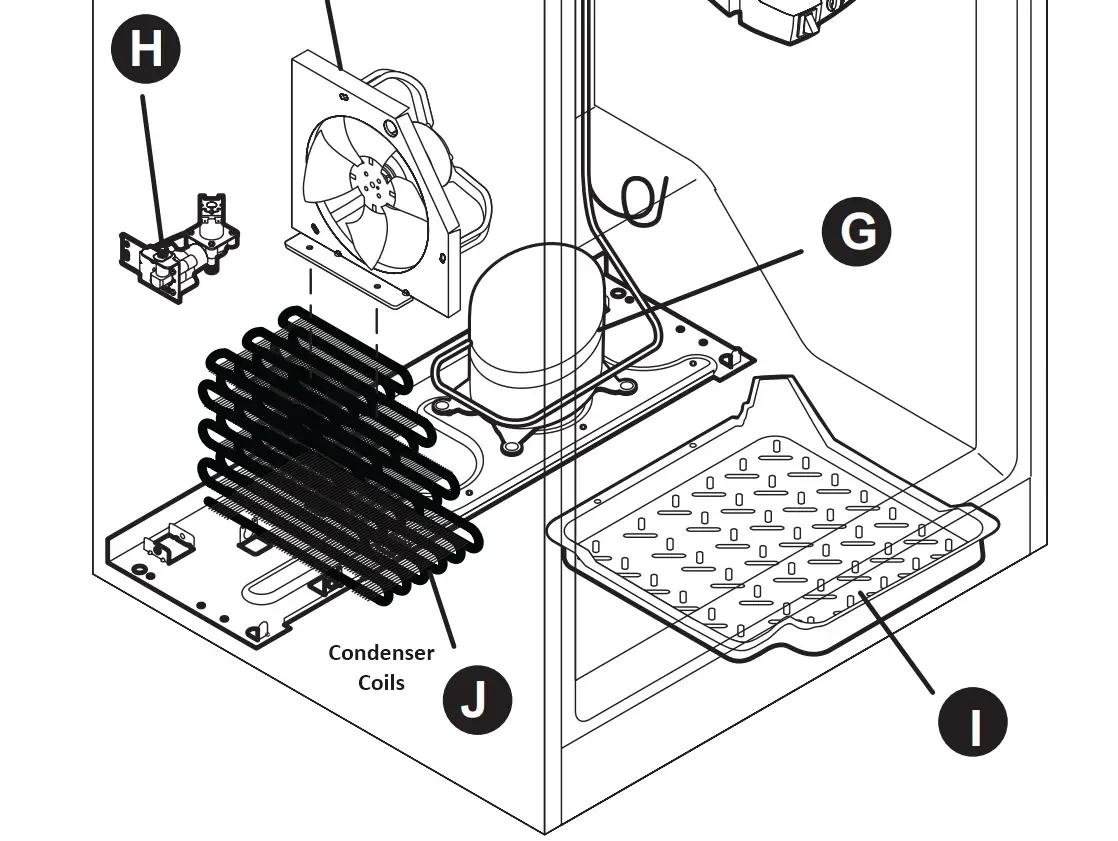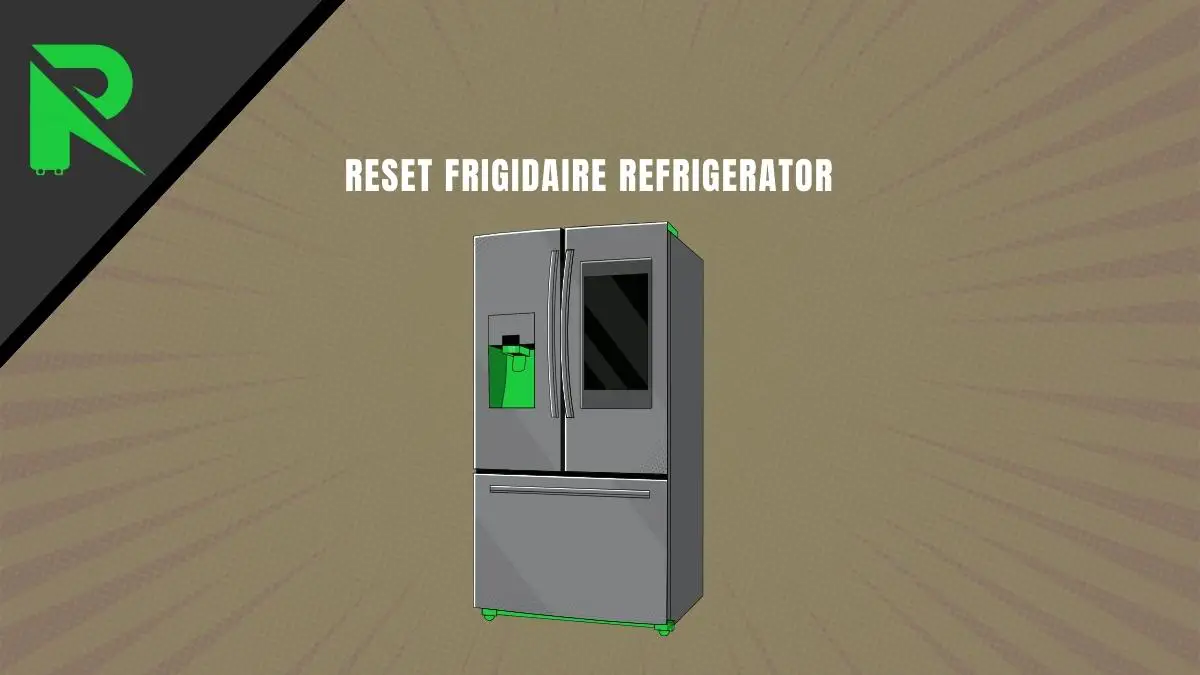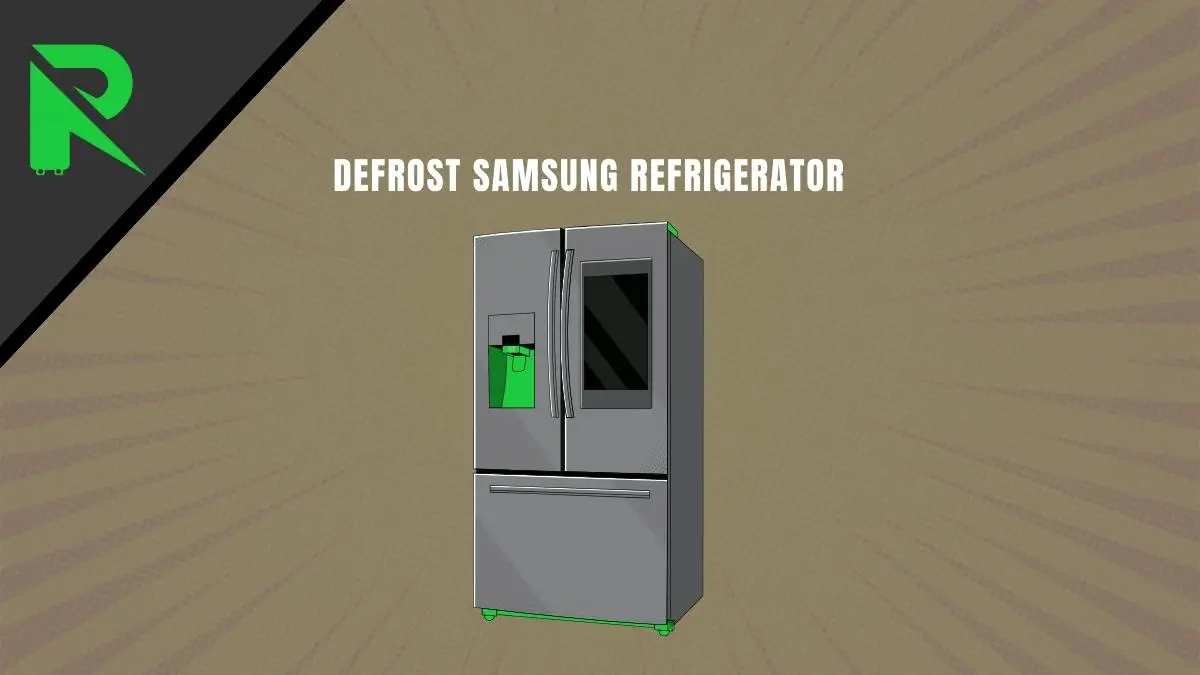Having an annoying beeping noise coming from your Frigidaire refrigerator can be frustrating. But don’t worry – in most cases, it’s an easy fix. This comprehensive guide will walk you through the common causes of Frigidaire refrigerator beeping and how to troubleshoot them.
What’s Causing the Beeping?
There are a few common triggers for Frigidaire refrigerator beeping:
- Door Ajar Alarm – The beeping starts if a refrigerator door is left open for over 60 seconds. This safety feature alerts you to close any open doors.
- High-Temperature Alarm – A beeping alarm will activate if the interior temps rise excessively high. This signifies a cooling issue.
- Error Codes – Most Frigidaire models display error codes via a series of beeps. These indicate specific sensor faults.
- Power Failure – Some refrigerators will beep after a power outage until reset.
No matter the cause, the beeping is the refrigerator’s way of signaling an issue. Pinpointing the trigger is the first step to stopping the noise.
| Quick Fix Steps |
|---|
| 1. Check if doors are closed properly |
| 2. Inspect door seals for damage |
| 3. Clean condenser coils |
| 4. Reset any error codes |
| 5. Replace faulty parts like fans or thermistors |
| 6. Update control board firmware if needed |
Before troubleshooting your Frigidaire refrigerator, a quick reset might be the solution you need.
Step-by-Step Troubleshooting
Follow these steps to diagnose and fix your Frigidaire refrigerator’s beeping:
1. Inspect Doors and Seals
If the beeping starts when you open the doors, the alarm could be related to a door issue.
- Make sure all refrigerator and freezer doors are completely closed. Listen to the sound of the door sealing when you close it.
- Check that the door gaskets are clean. Built up dirt or debris on the seals can affect the tightness.
- Examine the gaskets for any cracks, tears, or defects. Damaged seals allow cold air to escape.
- Do the light test. With the doors closed, inspect if any light is visible through the seals. Gaps mean less efficiency.
If inspecting the doors stops the beeping alarm, then it was most likely the door ajar alert.
2. Check Internal Temperatures
It’s a cooling issue when beeping happens randomly, and interior temps feel warm.
Use an appliance thermometer to check the temperatures. Place one thermometer in the refrigerator section and one in the freezer.
- Refrigerators should stay below 40°F.
- Freezers should maintain 0°F temperature.
If temps are too high, it’s likely triggering the high-temperature alarm beeping.
3. Clean Condenser Coils
Condensed coils could restrict airflow if the refrigerator has cooling problems and beeping.
To clean, first, unplug the appliance. Remove the vent panel covering the lower back of the refrigerator to access the coils. Use a brush and vacuum to clear dust buildup. After cleaning, replace the panel and plug it back in.
Let the refrigerator run for 1-2 hours, then check if temperatures are restored to normal ranges.
4. Reset Error Codes
Many Frigidaire models will use a series of audible beeps to signal sensor malfunctions or faults.
To decode error codes:
- Count each series of beeps
- Check the owner’s manual or era tag to determine which part fails based on the beep code
For example:
- 2 beeps = Cooling system failure
- 3 beeps = Door switch circuit open
- 4 beeps = Display communication error
The manual will explain the issue for that specific code. Once diagnosed, the error often requires replacing the faulty part.
After any repair, reset the refrigerator by unplugging it for 5 minutes. When powered back on, normal operation should resume without beeping.
5. Update Control Board
The main control board may need reprogramming if no other causes resolve the beeping issues. Some refrigerator models have updates released by Frigidaire to fix glitches.
Visit Frigidaire’s website and search for new control board firmware updates available for download. Follow the instructions to update the board software using USB. This often eliminates any control issues triggering alarms.
6. Replace Faulty Components
With diagnosis from error codes or temperature issues, you may need to swap out malfunctioning refrigerator parts. Common culprits include:
- Cooling fans
- Thermistors (temp sensors)
- Control boards
- Power supply boards
Always power off and unplug the appliance before replacing components. Install the replacement part, plug it back in, reset the fridge, and test for beeping problems. If the noise persists, further troubleshooting is needed.
Helpful Tips
- Use an appliance thermometer to monitor interior temps in the refrigerator and freezer over time. This helps catch cooling issues quickly before food spoils.
- Clean condenser coils every 6 months to maximize efficiency. Dust buildup hampers airflow.
- Don’t overfill the refrigerator or block vents with items. This reduces cooling capacity.
- Ensure appliances have proper ventilation on all sides for air circulation.
- Register your Frigidaire refrigerator’s warranty as a reference for technical service or replacement parts eligibility.
FAQs
1. What if replacing a part doesn’t stop the beeping?
Double-check connections to make sure replacement parts are properly installed. Test components for faults with a multimeter. Failing parts under warranty can be exchanged. Also, recalibrate the refrigerator after repairs.
2. Why does my Frigidaire refrigerator keep beeping every few minutes?
An open-door switch circuit alert commonly causes frequent beeping. Inspect both doors thoroughly for any gaps or damages allowing cold air leakage. Faulty door switches or connectors may also need to be replaced.
3. The beeping stopped, but now the refrigerator isn’t cooling.
Lack of cooling after a beeping issue could signify condenser, thermistor, or compressor failure. Have an appliance technician verify the diagnosis based on your model. Significant cooling issues may require replacing the sealed system.
4. My refrigerator beeps when the power goes out – is that normal?
Having the refrigerator alarm sound after an outage is typical with Frigidaire smart models. The alarm reminds you to inspect food safety since cooling is interrupted during blackouts. The fridge will require a manual reset once power is restored.
Credit: @jasonlee5190/YouTube
Conclusion
Frigidaire refrigerator beeping can certainly be a headache until you diagnose the root cause. Often, the alarm brings attention to door seal defects, cooling problems, or sensor malfunctions that must be repaired. Understanding the fault codes and utilizing appliance thermometers makes it easier to pinpoint issues.
Regular maintenance, like dusting condenser coils and food storage best practices, also prevents triggering excess beeping alerts. But when needed repairs arise, keep this guide handy to walk through the necessary troubleshooting. With the right diagnosis and part replacements, you can silence the annoying beeps and enjoy refrigerator cooling confidence again.
My Take on This Topic
As a refrigerator expert, I’ve seen the gamut of beeping issues with Frigidaire models over the years. In my experience, inefficient door seals or condenser buildup account for most cooling alerts people encounter. I always advise inspecting both areas first when any beeping starts unexpectedly. Catching minor door or vent problems quickly before they worsen often means simply adjusting seals or cleaning coils – minimal hassle versus appliance component replacements!
I also underscore the value of monitoring refrigerator temps periodically even without any beeping. An appliance thermometer inside units provides cheap insurance, alerting owners to gradual cooling declines before major spoilage losses result. Temp logs help pinpoint the trigger timeframe for technicians assessing repair needs down the road.
Overall, don’t ignore the beeping! While a nuisance, it signals potential refrigerator problems needing to be addressed. Utilize the beep codes and arm yourself with temperature knowledge about your refrigerator’s operation. This removes the guesswork from diagnosing issues and gets the appliance back to cooling standards and food safety.
